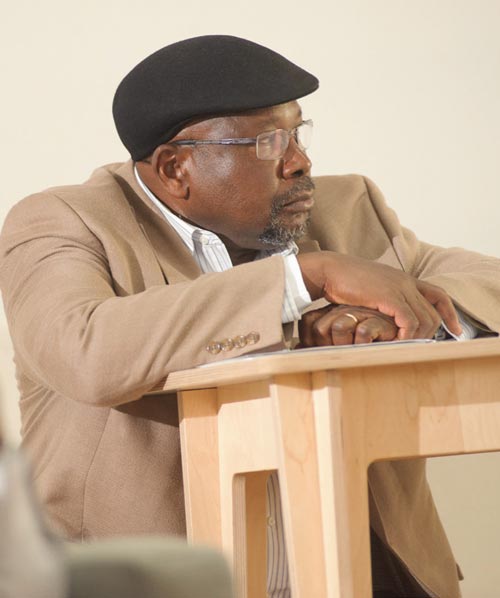 Professor James Ogude
Professor James Ogude
Recent scholarship in Africa points to the significance of the politics of the ordinary and the fact that people in Africa often endeavour to deal with issues of alienation and trauma by turning to African spiritual and cultural rites and epistemologies. Nowhere is this more visible than in communal initiatives towards healing and reconciliation in post-conflict situations in Africa. In the wake of violent conflict that returns to riddle African states such as Rwanda, Uganda and Kenya, and at the dawn of democracy in post-apartheid South Africa, reconciliation again emerged at the centre of the agenda.
Through a series of colloquia and workshops with a team of scholars and experts from the University of Pretoria and East Africa, Professor James Ogude at the Centre for the Advancement of Scholarship led a conversation on the theme of Ubuntu and Personhood. Inserting the concept of Ubuntu within the broader intellectual debate on self and community, the project produced key contributions that demonstrate the value of Ubuntu in recovering and developing a language of reconciliation drawn from principles underpinned by Ubuntu.
One of the results of this discussion was an article by James Ogude and Unifier Dyer which grapples with the illusive search for justice and reconciliation in the aftermath of the 2007 post-election violence in Kenya. Through engagement with post-conflict narratives of affected communities, the article asks whether indigenous forms of reconciliation such as Ubuntu/Utu have a role in processes of transitional justice. Similarly, one of their research associates, Professor Dominic Dipio from Makerere University, has been doing extensive research on rituals of reconciliation in Uganda with a specialised focus on the Acoli community in Northern Uganda. The two papers were presented, alongside others, in one of the two panels that were dedicated to the theme of Ubuntu at the international conference on Literary and Cultural Studies at Makerere University in August 2015.
The article by Ogude and Dyer was presented by Professor Ogude at the 5th Intercultural Interdisciplinary Colloquium on Reconciliation and Justice held in Vienna from 20-22 May 2015 in conversation with critical reflections on parallel value systems on the continent, such as Utu. Its publication in one of the leading German philosophical journals Polylog: Journal on Inter-cultural Philosophy, inserts scholarship and debate on Ubuntu beyond its local confines, placing it alongside the study of other indigenous concepts used in mediating and facilitating transitional justice globally.